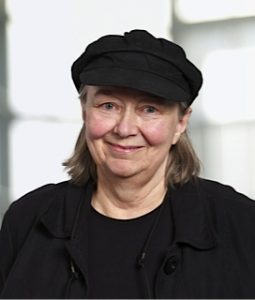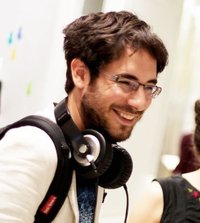Organisers:
Dr Miguel Nacenta and Dr Uta Hinrichs
Date:
Friday May 8th, 11:00 to 16:30
Location:
School of Computer Science, University of St Andrews
John Honey Building, North Haugh (KY16 9SX)
Open to the SICSA community, the University of St Andrews community
No charge, but limited places.
Registration:
Please sign up here at Eventbrite


Workshop By Prof Sheelagh Carpendale and Dr Samuel Huron
Workshop Focus and Motivation
We are moving into a new era of a data driven society. The collection and use of data abounds in science, industry, government, commerce, and also in our personal lives both at work and socially. Data is being continually collected, and being stored in increasingly massive data warehouses in the expectation of later analysis and use. The common belief is that through this data, we, as a society, can gain new insights and learn how to run our lives, businesses, cities, etc. more efficiently, and effectively. Yet society is increasingly, if only vaguely aware of the volume and variety of data that we are accruing on a daily basis. However, there is a gap, how can data lead to new insight?
To realise even the beginning of the promised potential of this data, we must become data literate. To be an effective data driven society this notion of data literacy must extend beyond the data literacy of a few experts to a wider population. We must each become, at least somewhat, data literate.
To test the waters of what might possibly constitute data literacy exercises, we will hold a workshop based on sketch based visualisation and constructive visualisation on May 8th 2015.
This will be a hands-on workshop where we will conduct exercises on data characterisation, visualisation data sketching, and constructive visualisation. There will be several short talks on basic data visualisation concepts, discussions, sketching sessions and constructive visualisation sessions.
In this workshop you employ the basic visual variables to construct meaningful representations, the dynamic manipulation of spatial positioning to enable spatial reasoning, and through these practices you will become aware of the wide variety of ways that people can think about data.
This workshop is designed for professionals, academics, and anyone with an interest in visualisation and data science. No programming experience required.
Bios
Sheelagh Carpendale is a SICSA Distinguished Visiting Fellow to Scotland this May. A Professor in the Department of Computer Science at the University of Calgary where she holds a Canada Research Chair in Information Visualisation and NSERC/AITF/SMART Technologies Industrial Research Chair in Interactive Technologies. She has received many awards including the E.W.R. NSERC STEACIE Memorial Fellowship; a BAFTA (British Academy of Film & Television Arts Interactive Awards); an ASTech Innovations in Technology Award; and the CHCCS Achievement Award. She leads the Innovations in Visualization (InnoVis) research group and initiated interdisciplinary graduate programs in Computational Media Design. Her research on information visualisation, large interactive displays, and new media draws on her background in Computer Science, Art and Design (Simon Fraser University, Emily Carr, Institute of Art and Design, Sheridan College, School of Design). She has found the combined visual arts and computing science background invaluable in her information visualisation research.)
Samuel Huron is Lead Designer at the Institute for Research and Innovation of the Pompidou Center (Paris) and Post doctorate researcher at the University of Calgary in the Innovis Lab. He successfully defended his Ph.D. on “Constructive Visualization: A token-based paradigm allowing to assemble dynamic visual representation for non-experts” at the Pompidou Center (Paris, France) in September 2014, under the supervision of Jean-Daniel Fekete, Vincent Puig and Sheelagh Carpendale. He graduated first candidate in 2009, Master in New Media Art in Paris 1 Panthéon-Sorbonne. He participated in several design research groups at Ecole National Supérieur des Arts décoratifs. For over ten years he has carried out multiple creative web projects for a broad range of civic, cultural and corporate clients. His interest focuses particularly on computer human interaction and visual languages.
News
Once again, members of SACHI are presenting a number of papers and other works at this year’s CHI in Seoul, South Korea. The schedule below will allow you to see a sample of the Human-Computer Interaction research from the University of St Andrews.
Paper (Best paper): VelociTap: Investigating Fast Mobile Text Entry using Sentence-Based Decoding of Touchscreen Keyboard Input [ACM DL]
Session: How Fast Can you Type on your Phone?
When: Monday 16.30-17.50
Where: 402
Teaser Video
Paper: Performance and User Experience of Touchscreen and Gesture Keyboards in a Lab Setting and in the Wild [ACM DL]
Session: How Fast Can you Type on your Phone?
When: Monday 16.30-17.50
Where: 402
Paper: MultiFi: Multi Fidelity Interaction with Displays on and Around the Body [ACM DL]
Session: Multi-Device Interaction
When: Thursday 14.30-15.50
Where: 401
Teaser Video (download paper and other files here)
AltCHI Paper: The Broken Dream of Pervasive Sentient Ambient Calm Invisible Ubiquitous Computing [ACM DL]
Session: Augmentation
When: Monday 11.30-12.50
Where: 308
Teaser Video
Furthermore, Miguel Nacenta is on the subcommittee for Interaction Using Specific Capabilities or Modalities, and Uta Hinrichs is on the subcommittee for Design. Per Ola Kristensson, who is now an honorary associate and external member of SACHI, is on the subcommittee for Interaction Techniques and Devices, whilst also being co-organiser of the two workshops below.
Workshop: Text Entry on the Edge
When: Saturday 08.00-17.00
Where: 325
Workshop Link
Workshop: Principles, techniques and perspectives on optimization and HCI.
When: Sunday 08.00-17.00
Where: 324
Workshop Link
Members of SACHI also contributed to the Scottish HCI welcome party supported by the SICSA HCI theme which was a great success. Last but not least, Aaron Quigley is one of the conference session chairs while Shyam Reyal will be a Student Volunteer throughout the conference at this year’s CHI.
SICSA members at the Scottish HCI party
 In early April, members of SACHI will presented their practice talks for papers accepted to CHI 2015, the ACM CHI Conference on Human Factors in Computing Systems 2015. This pre-CHI day, is a SICSA HCI event hosted in Heriot Watt University.
In early April, members of SACHI will presented their practice talks for papers accepted to CHI 2015, the ACM CHI Conference on Human Factors in Computing Systems 2015. This pre-CHI day, is a SICSA HCI event hosted in Heriot Watt University.
<!–Speaker: Mel Woods, University of Dundee
Date/Time: 2-3pm April 28, 2015
Location: CS1.33a, University of St Andrews–>
Abstract:
Blue heritage plaques pepper the UK landscape expounding officially validated narratives celebrating past events, people, and buildings. This seminar will discuss a novel method that draws on this specific cultural context to generate reflective, nano-stories, documenting them through populating a place, physical space, and an online data repository. The guerrilla blue plaque method was designed to support people to reflect on possible futures, in this instance the theme of future cities. The seminar will demonstrate how using critical design artefacts can help support understanding of future hopes, needs, and goals for individuals and communities. It will also discuss the method as a feedback mechanism for participatory design, citizen engagement and emergent outcomes from the latest deployment.
This work was initially developed as part of a UK arts and digital media festival and exhibited recently at Microsoft Research Lab, Cambridge at RTD 2015.
Bio:
Mel is Reader at Duncan of Jordanstone College of Art and Design, University of Dundee. In her research she has developed and explored interaction between people to support discovery, foster creativity and affect. Throughout her academic career she has sustained a critical enquiry in art and design, creating digital artefacts, interfaces, prototypes and exhibits using novel methods and evaluation techniques.
This seminar is part of our ongoing series from researchers in HCI. See here for our current schedule.

